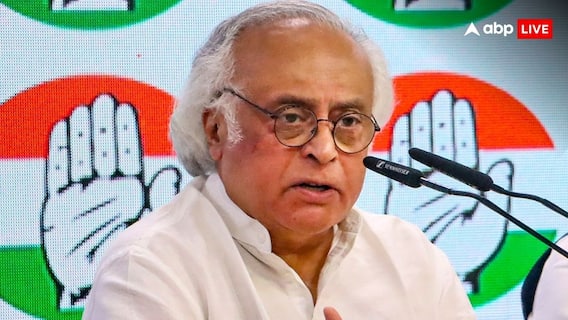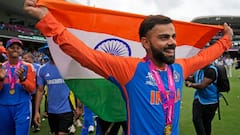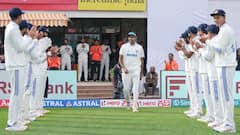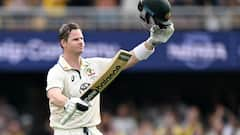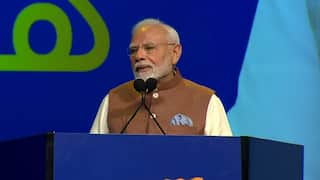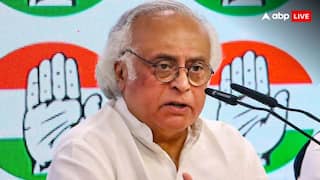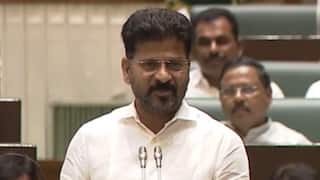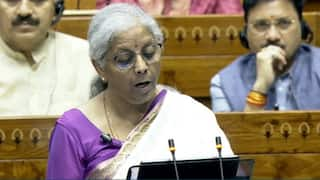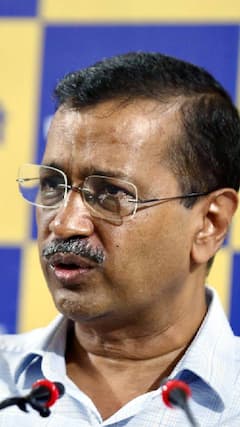West Indies did not always play in right spirit in the '90s: Lara

 Photo: @HomeOfCricket
Photo: @HomeOfCricketLondon: Legendary West Indies batsman Brian Lara on Tuesday admitted the Caribbean regional cricket outfit during the 1990s did not always play in the right spirit of the game despite dominating world cricket at that point.
While delivering the MCC Spirt of Cricket Cowdrey lecture at Lord's, Lara urged top sides "to ensure that the integrity of the game is upheld".
"The highest-ranked team in the world has the responsibility to ensure that the integrity of the game is upheld every single time they play... and that the spirit of cricket is with them every time they enter the field," Lara was quoted as saying by espncricinfo.
And, despite the outstanding record of the West Indies sides of the 1980s and early 1990s, Lara felt they were occasions when the tactics they employed resulted in them "playing the game in a way it should never, ever be played".
Lara gave examples of a series against New Zealand in 1980, when Colin Croft shoulder-barged an umpire and Michael Holding kicked over the stumps in frustration, and two series (against Pakistan in 1988 and England in 1990) when he suggested that the West Indies employed a certain amount of gamesmanship to win at any cost.
"I grew up at a time when West Indies dominated the world. For 15 years from 1980, the West Indies never lost a Test series. And just before that, Colin Croft decided he was going to take a piece out of Fred Goodall's shoulder and ran into him during a Test Match. Michael Holding decided he was no longer a cricketer, he was a footballer and he kicked a stump. I'm sure the occurrences during that period had a big effect on cricket," he considered.
Lara confessed he was "embarrassed" when a series of umpiring decisions helped the West Indies lord England in 1988.
"Everyone said England had no chance. But they won in Jamaica and, in Trinidad, even after rain, had ample time to chase down a small total," Lara said.
"I had never seen groundsmen and officials fight for Man of the Match. They moved lethargic, slow. If there was a wet spot someone went off the field, they came back with nothing in their hands, they took their time to ensure this game was not going to start any time soon.
"Eventually, it started with a couple of hours to go and England still had time. We bowled, in one hour, seven overs. It was dark and Graham Gooch had to call his troops from the field and the West Indies grabbed a draw."
Lara said as a young West Indian cricketer, it was his most embarrassing moment.
"I was 12th man. I was very, very guilty. I was running out with laces, a banana, water, cough tablets, all sorts of things in that last hour. It was truly embarrassing," he said.
"They went on to Barbados. It was another keenly-fought Test and Rob Bailey was batting with not much time to go for a drawn Test. He flicked the ball down the leg side and Jeffrey Dujon dived and collected. The first slip -- I'm not going to call his name -- ran towards the umpire and signalled. The umpire wasn't taking him on but he kept going and going and eventually he stuck his finger up and gave Bailey out. It definitely wasn't out.
"England sort of lost faith in the game. They lost that Test and the next in Antigua for the West Indies to win the series 2-1. As a West Indian, I was truly embarrassed. As a young cricketer who looked up to a lot of the individuals in the team, it was one of the saddest moments in the world. For me, I felt the West Indies being the best team in the world needed to play cricket in a different way."
Lara also hinted that such sportsmanship damaged Caribbean cricket in the long run.
"People talk about the Tests series we lost in 1995 as the time we began to spiral," Lara said. "I felt we started to spiral years before that when the great players were playing.
"And if Pakistan or England got what they deserved in 1988 and 1990, I feel the West Indies officials would have taken a different look into what to do to save West Indies cricket at a time we had senior players who could have guided the younger players to have ensured we were on the right footing. But that didn't happen."
Trending News
Top Headlines







